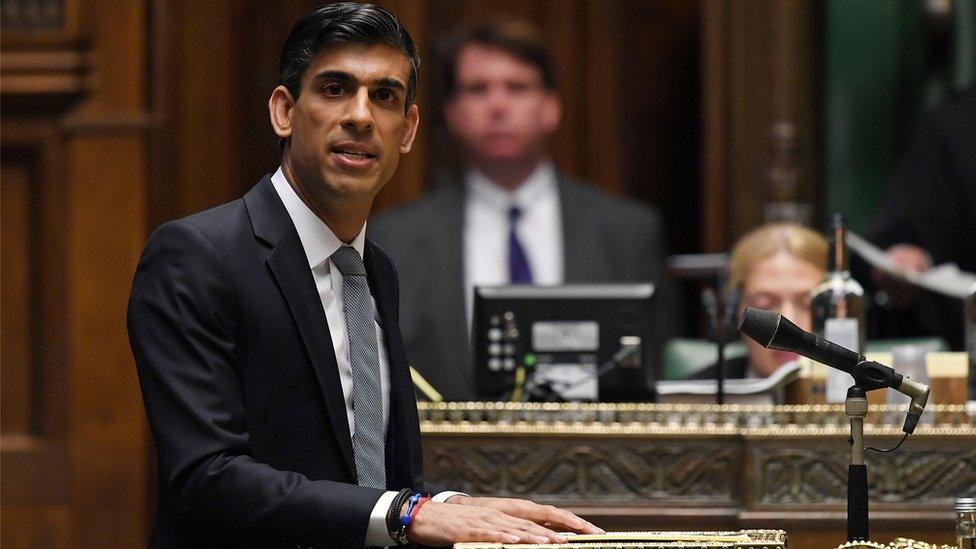Coronavirus: Labour wants review of job retention bonus scheme
- Published

The scheme is major plank of Chancellor Rishi Sunak's recovery plan
Labour is calling for a review of whether the chancellor's job retention bonus scheme represents value for money for the taxpayer.
The scheme will pay firms £1,000 for each employee brought back to work from furlough and employed until January.
Labour's call comes after the top official at HM Revenue and Customs (HMRC), Jim Harra, wrote to the chancellor about the plan's efficacy.
Chancellor Rishi Sunak has defended the scheme.
The bonus scheme is intended to provide an incentive for companies to keep workers employed as the furlough scheme, which helped pay wages, is phased out over the autumn.
If every eligible worker is covered it will cost £7bn - making it a major plank of the Mr Sunak's £30bn economic recovery plan.
Labour's shadow chief secretary to the Treasury, Bridget Phillipson, has written to the head of the National Audit Office to question the costs involved in the scheme.
She said the party feared the plan would prove "ineffective" and "see money allocated to firms that don't need it". Firms would receive money for keeping jobs which were never at risk, she said, and the scheme would direct money away from the most vulnerable sectors.
Several large firms, including Primark, have already said they will not be using the scheme, after criticism that taxpayers' money would go to big companies who are not at risk of having to make job cuts.
Chancellor Rishi Sunak: "We cannot lose this generation"
But speaking to the Treasury select committee on Wednesday, Mr Sunak said the scheme provided a "significant incentive" for firms to retain staff who would otherwise be laid off.
"I firmly believe that it will and can make a difference," he said, adding: "I think the way it is designed, particularly for those who are lower paid, it will serve as a significant incentive and reward to those especially small and medium-sized companies to protect employment."
Mr Sunak had to issue a ministerial direction to his department after Mr Harra voiced his objection. This transfers responsibility for the efficiency of the policy from a department's permanent secretary, in this case Mr Harra, to the minister.
Ministerial directions are not unusual but have become more common in recent years, and even more so during the coronavirus crisis.
- Published15 July 2020
- Published9 July 2020
- Published9 July 2020